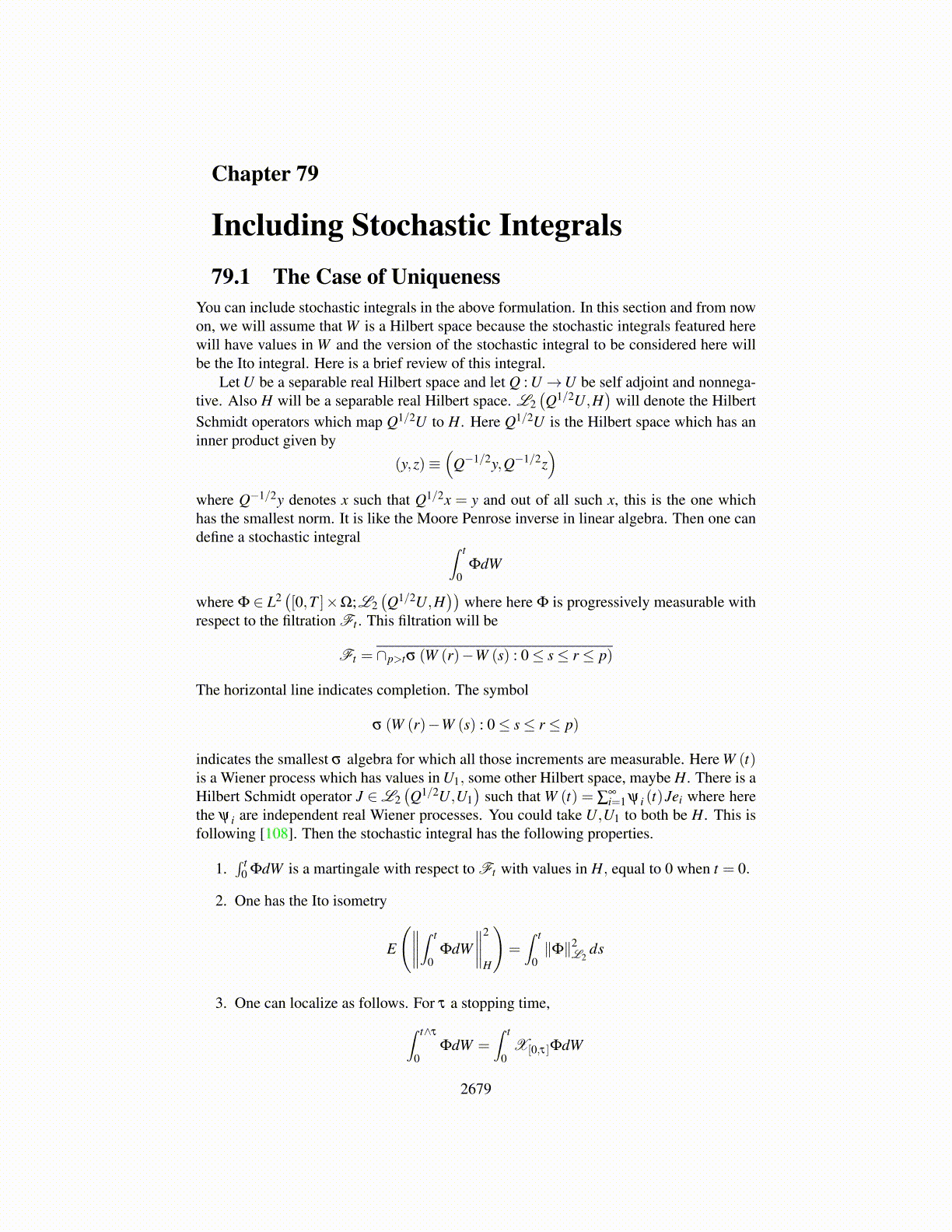
78.4. PROGRESSIVELY MEASURABLE SOLUTIONS 2679
for each ω . Then the solution u to the above integral equation is progressively measurableand so is u∗. Moreover, for each ω , u∗ (·,ω) ∈ A(u(·,ω) ,ω). Also, for each a ∈ [0,T ] ,
Bu(ω)(t)+∫ t
au∗ (s,ω)ds =
∫ t
af (s,ω)ds+Bu(ω)(a)+Bq(t,ω)−Bq(a,ω)
Proof: By Theorem 78.3.4 there exists a solution to 78.4.33 which is B ([0,T −σ ])×FT−σ measurable. Since this is true for all σ > 0, there exists a unique B
([0, T̂])×FT̂
measurable solution for each T̂ < T . Now, as in the proof of Theorem 78.3.4 one can definea new operator
Ar (w,ω)≡ A(ω,w+qτr (·,ω))
where τr is the stopping time defined there. Then, since q is progressively measurable, theprogressively measurable condition is satisfied for this new operator. Hence by Theorem78.4.3 there exists a unique solution w which is progressively measurable to the integralequation
Bwr (t,ω)+∫ t
0u∗r (s,ω)ds =
∫ t
0f (s,ω)ds+Bu0 (ω)
where u∗r (·,ω) ∈ Ar (w(·,ω) ,ω). Then you can let r → ∞ and eventually qτr (·,ω) =q(·,ω). Thus there is a solution to
Bw(t,ω)+∫ t
0u∗ (s,ω)ds =
∫ t
0f (s,ω)ds+Bu0 (ω)
u∗ (·,ω) ∈ A(w(·,ω)+Bq(·,ω) ,ω)
which is progressively measurable because w(·,ω) = limr→∞ wr (·,ω) in V each wr beingprogressively measurable. Uniqueness is needed in passing to the limit. Thus for eachT̂ < T,ω→ w(·,ω) is measurable into V[0,T̂ ]. Then by Lemma 78.1.5, w has a representa-tive in V[0,T̂ ] for each ω such that the resulting function satisfies (t,ω)→X[0,T̂ ] (t)w(t,ω)
is B([
0, T̂])×FT̂ measurable into V . Thus one can assume that w is progressively mea-
surable. Now as in Theorem 78.3.4, Define u = w+q. It follows by uniqueness that thereexists a unique progressively measurable solution to 78.4.33 on (0,T ).
The last claim follows from letting t = a in the top equation and then subtracting thisfrom the top equation with t > a.